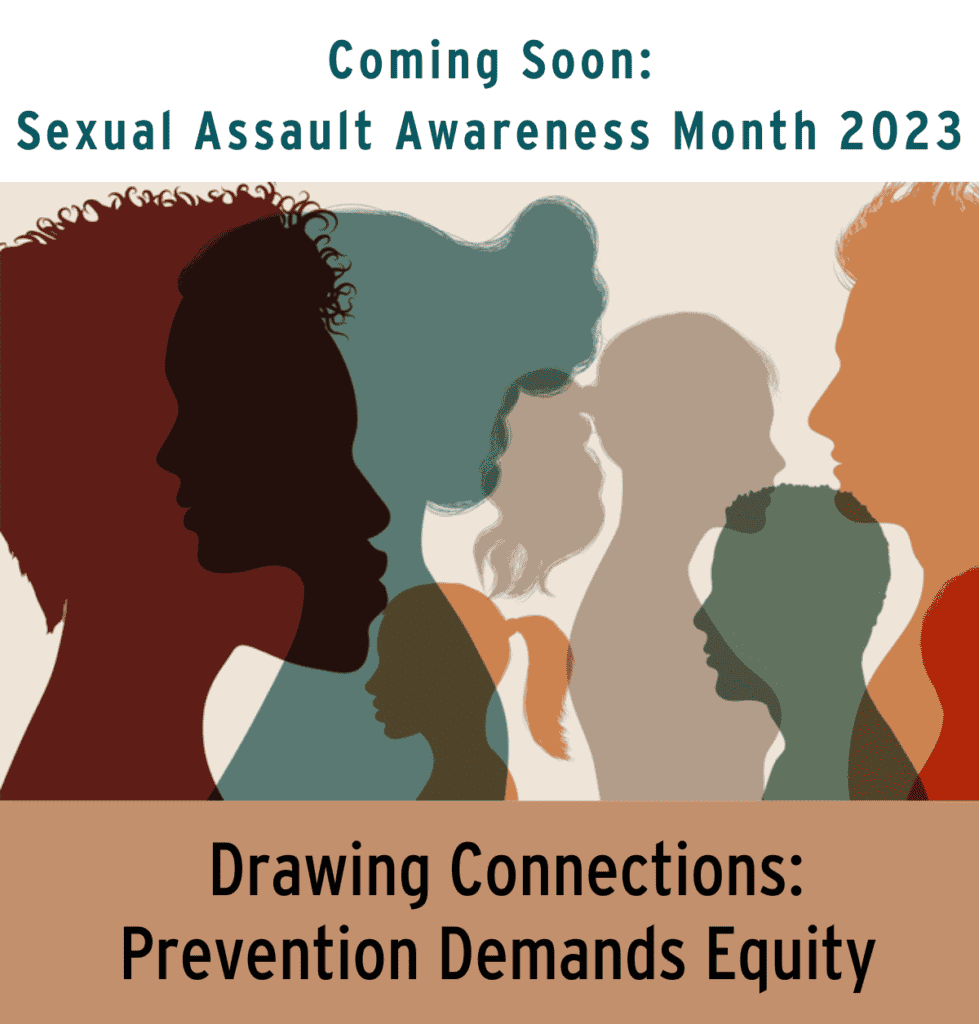Teen Dating Violence Awareness Month 2023
Your online community
A support system can help you define and maintain a healthy, loving relationship. Here are some community resources you can turn to:
Abused Deaf Women’s Advocacy Services (ADWAS): provides services to deaf, deafblind, and deaf-disabled survivors of domestic violence and sexual assault
Brown Boi Project: a community of people working across race and gender to eradicate sexism, homophobia, and transphobia and create a healthy framework of masculinity and change.
HEART: ensures that Muslims have the resources, language, and choice to nurture sexual health and confront sexual violence
LGBT National Help Center: serving the LGBTQ+ community by providing free and confidential peer support and local resources. Call 1-800-246-7743 or chat
National Runaway Safeline: 24/7 free support for homeless and at-risk youth. Call 1-800-RUNAWAY or visit their website
Scarleteen: inclusive, comprehensive, supportive reproductive and relationships info for teens
StrongHearts: 24/7 free, confidential, and culturally relevant support for Native American and Alaska Native teens and young adults experiencing dating abuse and sexual violence. Call 844-7NATIVE (762-8483) or chat live
The Trevor Project: provides 24/7 confidential crisis intervention and suicide prevention services to LGBTQ+ teens and young adults under 25. Call 1-866-488-7386, text START to 678678, or chat live
Your Life Your Voice: supporting parents, families, and children in times in need. 24/7 hotline, text, or email
Be about education
Learning is an ongoing experience. It can be tough to know how to navigate relationships, let alone know what makes them healthy or unhealthy. There are warning signs to look out for in a relationship. We’ll also list below some key elements of a healthy relationship. Exploring relationships can be daunting, but it’s also an exciting way to learn more about yourself, what you need and want in a relationship!
How do I know if my relationship is healthy?
Your relationship may be sexual (though it does not have to be) or not, serious or casual, gay or straight, monogamous or open, short-term or long- term. No matter what your relationship looks like communication, trust, honesty, and equality are some key elements to a healthy relationship.
Boundaries
Boundaries are yours to build but it can be scary to ask for what you need from your partner. When you trust your feelings and know your needs, communicating boundaries with your partner is so empowering. Trust yourself!
Boundaries define what each person is comfortable with and how you would like to be treated by others. Boundaries help you honor your needs, feelings, and values. To learn more about some different types of boundaries check out the links below.
- Physical boundaries: Respect for physical boundaries can be a good indication of how healthy your relationship is. In ahealthy relationship, partners know how far the other wants to go based on open communication, and they feel comfortable communicating with each other if something changes. There are no rules dictating how far you have to go by a certain age or at any given time in a relationship, and your boundaries should always reflect how ready you feel personally.
Remember: sex isn’t currency. You don’t owe your partner anything, and it isn’t fair for them to claim that you don’t care about them because you’ve established or are establishing physical boundaries. Building and respecting physical boundaries depends on open, honest communication.
Emotional boundaries They’re an important part of making sure you feel safe and comfortable in your relationship. Trusting someone means you think that they’re reliable, you have confidence in them, and you feel safe with them physically and emotionally. Real trust takes time to build and requires that partners decide for themselves when they trust each other: you can’t demand or prove it.
Digital boundaries The line between healthy and unhealthy relationships can get confusing once a relationship goes online. It’s not always clear what your digital relationship should look like, and different people may decide on different terms for their own arrangements.
The theme of Sexual Assault Awareness Month 2023 is “Drawing Connections: Prevention Demands Equity.” This April’s campaign calls on all individuals, communities, organizations, and institutions to change ourselves and the systems surrounding us to build racial equity and respect.
